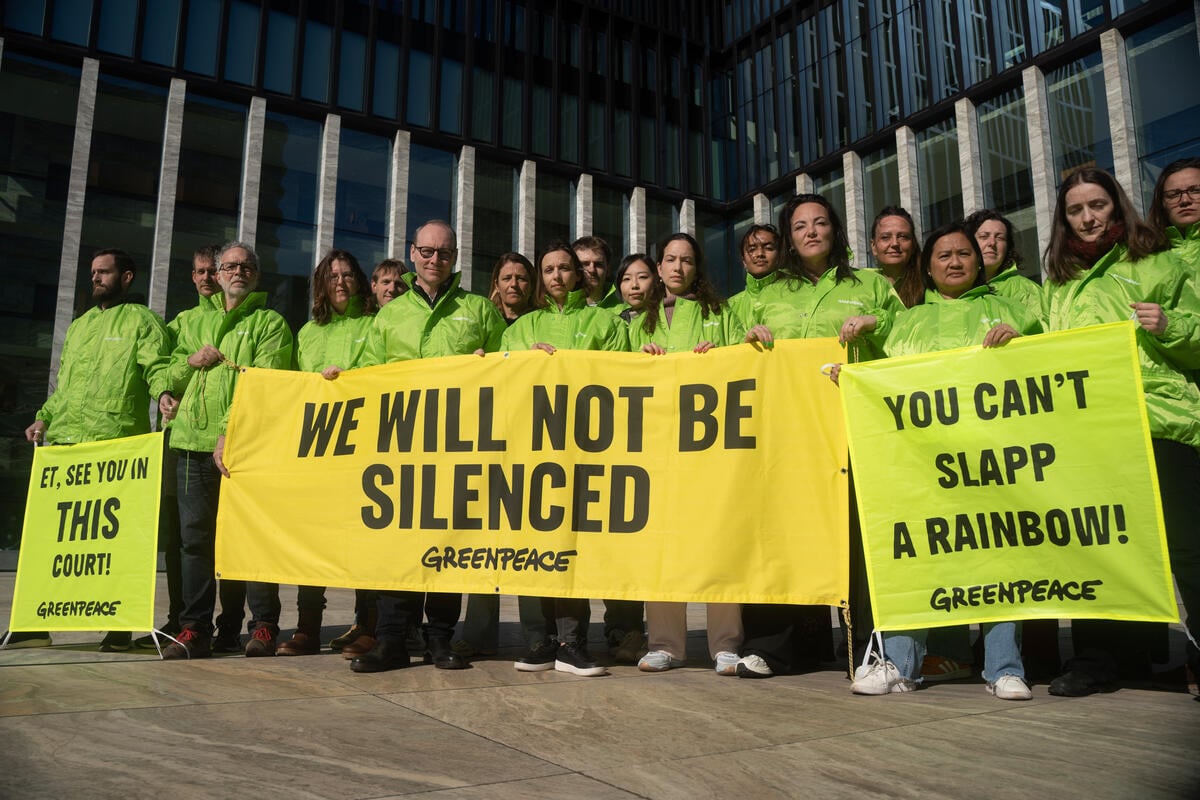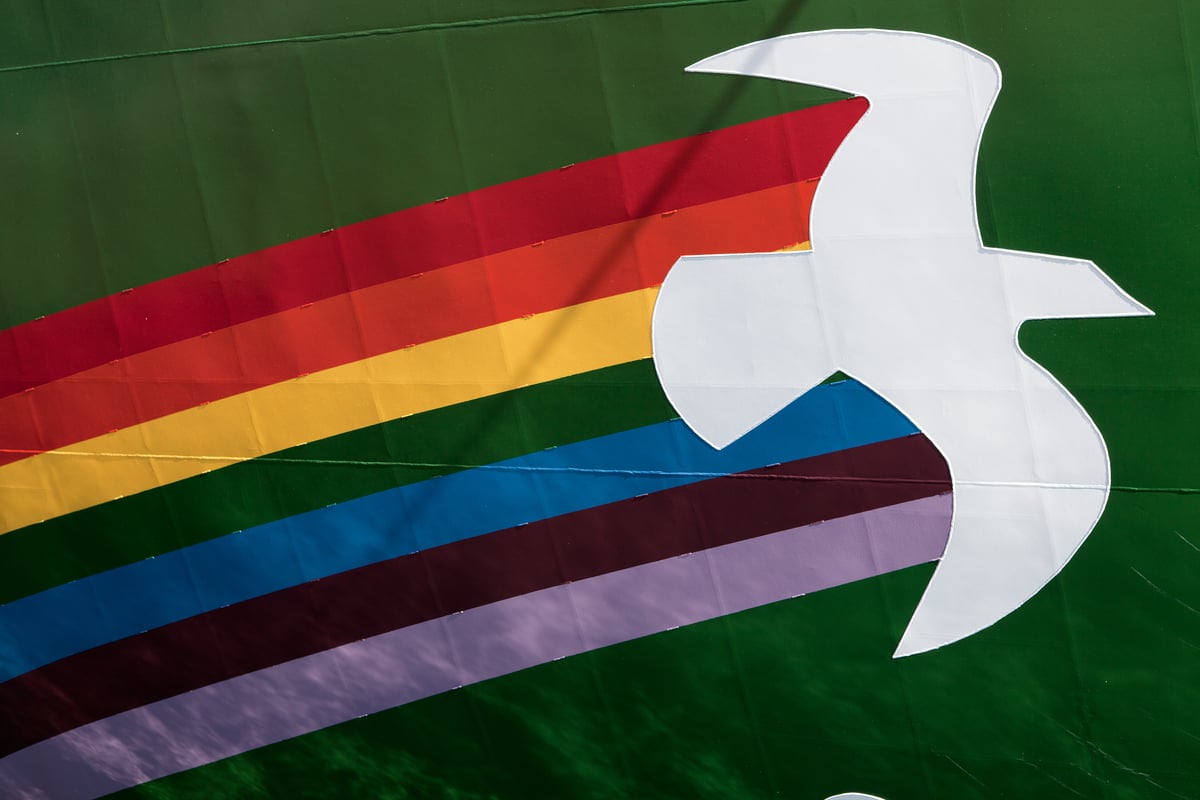This blog was originally published on 23 July 2024. It was updated on 12 February 2025 to reflect further developments.
Bad news for bullies: Greenpeace International (GPI) initiated the first test of the European Union’s new anti-SLAPP Directive, a major step toward ending the practice of the courts being abused to silence those who speak out on matters of public interest. After a recent barrage of such bullying lawsuits from Big Oil companies, GPI has now filed a lawsuit in Dutch court against the worst offender, Energy Transfer. The US-based fossil fuel pipeline company is waging one of the world’s most brazen SLAPPs — and it’s time to demonstrate this practice doesn’t pay.
Strategic Lawsuits Against Public Participation (known as SLAPPs) are a weapon widely used by fossil fuel companies against environmental activists, journalists, and Indigenous Peoples. The EU’s anti-SLAPP Directive was adopted in March 2024 after a strong civil society coalition persuaded the EU to act.
Greenpeace International and the Greenpeace entities in the US are currently defending a meritless SLAPP lawsuit for nearly US$ 300 million in North Dakota filed by Energy Transfer (ET). Within months after its adoption, the new EU anti-SLAPP Directive was already factoring into GPI’s fight against ET: GPI, which is based in the Netherlands, sent a Notice of Liability in July 2024 informing ET of its intention to bring a lawsuit against the company in a Dutch court to recover all damage and costs it has suffered as a result of the SLAPP suit, unless ET withdraws its case against Greenpeace International and accepts responsibility. Energy Transfer refused to do so.
GPI’s legal action sends a message to ET and overreaching corporate polluters that civil society will not be silenced, and is ready to push back against SLAPPs.
The backstory of Energy Transfer’s baseless SLAPP lawsuit
Energy Transfer LP is a company that runs one of the largest fossil fuel pipeline networks and associated energy infrastructure in the US. Its founder and Executive Chairman is Texan billionaire Kelcy Warren, a key financial supporter of Donald Trump. In April 2016, tribal members set up prayer encampments to voice objections to the route ET had chosen for its Dakota Access Pipeline (DAPL), and organised powerful displays of resistance to corporate power that clearly rattled Big Oil.
ET has filed back-to-back SLAPPs against the Greenpeace entities in an attempt to rewrite the history of this Indigenous-led movement. In its first case, in 2017, ET alleged the Greenpeace defendants form part of a criminal enterprise that orchestrated the Indigenous-led movement as a way to raise funds. When this bogus theory was rightly thrown out by the federal court, ET promptly filed a new suit in a North Dakota State court, making wide-ranging (and similar) allegations. But the only concrete thing ET can actually point to GPI having done is co-signing, together with over 500 other organisations, an open letter expressing concern about DAPL towards banks financing the pipeline. From the outset, this has been an attempt by ET to bury nonprofits and activists in legal fees, make them go bankrupt, and ultimately silence dissent.
The jury trial is set to open on February 24 in North Dakota, a jurisdiction that lacks anti-SLAPP legislation.

The EU pushes back against SLAPPs
The EU’s adoption, in March 2024, of a Directive to combat SLAPPs, like the ET suit, gives EU-based victims of SLAPP lawsuits a mechanism to fight back. In particular, Chapter V of the Directive protects organisations based in the EU against SLAPPs from outside the EU, and entitles them to claim compensation.
The EU’s anti-SLAPP Directive was adopted amid widespread misuse of legal systems to target journalists, activists, whistleblowers and other watchdogs. A report by the Coalition Against SLAPPs in Europe (CASE) documented 1,049 SLAPP suits in Europe in the period 2010-2023, with 166 lawsuits initiated in 2023.
Daniel Simons is Senior Legal Counsel Strategic Defence at Greenpeace International



